Author of "Embracing Auschwitz" and "Mensch•Marks: Life Lessons of a Human Rabbi - Wisdom for Untethered Times." Winner of the Rockower Award, the highest honor in Jewish journalism and 2019 Religion News Association Award for Excellence in Commentary. Musings of a rabbi, journalist, father, husband, poodle-owner, Red Sox fan and self-proclaimed mensch, taken from essays, columns, sermons and thin air. Writes regularly in the New York Jewish Week and Times of Israel.
Saturday, October 31, 2020
Friday, October 30, 2020
Borat’s hidden message to Jews (Times of Israel)
FEATURED POST
Borat’s hidden message to Jews
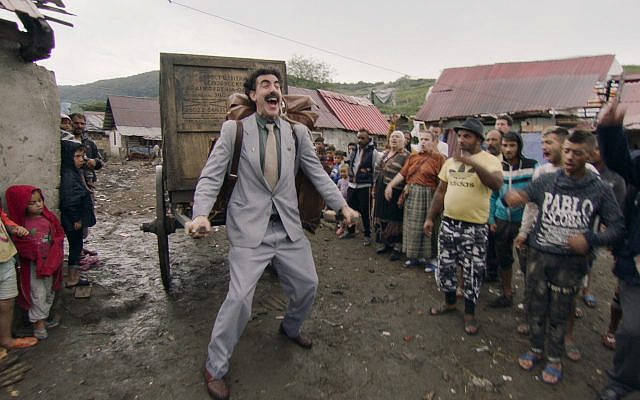
Beware of spoilers...
I watched the new “Borat” movie last weekend and while I didn’t laugh out loud as much as I did back in 2006 — and I may have cringed twice as much — I came away once again admiring Sacha Baron Cohen’s ability to smoke out bigotry wherever it may be found. And while those in red states and Kazakhstan may take offense at being the most visible targets of his jabs, the film mocks all bigotry, not just what may be found at gun rallies, cotillions and peasant villages in Central Asia.
The critique is so biting that one wonders how some of the participants could possibly have not been in on the joke, like the baker who obligingly inscribes “Jews Will Not Replace Us (smiley face)” on a cake, or the shop owner to whom Borat asks how many gas canisters it would take to kill a truckload of gypsies.
Cohen was not the first to show us how just plain folk are capable of extraordinary cruelty, but it never ceases to shock us. And it never should.
Yes, there are real people capable of laughing at songs about Saudis chopping up people and somewhere in America is at least one plastic surgeon who can air-trace a Jewish hook-nose that would make Der Stürmer proud.
Sacha Baron Cohen is this generation’s Charlie Chaplin, Groucho Marx and Lenny Bruce rolled into one. His humor is quintessentially Jewish, in that each disarming punchline contains a hidden arrow aimed at the heart of the enemy; the enemy being ignorance, cruelty and hate.
The banality of the evil next door never ceases to shock us, but even more, Sacha Baron Cohen’s sheer chutzpah never ceases to amaze us. With every act of derring-do, he winks at his fellow Jews, who would best recognize the dangers, as if to say, “You think I can survive a few nights with these wacko conspiracy theorists (who turn out to be pretty decent folks)? You think I can expose the hypocrisy of CPAC while dressed as Donald Trump? You think I can nab Rudy himself? Watch me!” For a people used to hiding in closets, Cohen, who hid in a closet while Rudy was being nabbed, is wish-fulfillment incarnate.
While his humor appeals to people everywhere, Cohen inserts hidden clues for Jews affirming that he gets it — he understands that anti-Semitism is the mother of all hatreds, and therefore we have a special mission to combat hatred everywhere, even when it is uncomfortable, even when it’s down the street at the bakery. Our mission is to be able to laugh in the face of evil while showing unmitigated compassion for victims, which he shows for individuals like a Holocaust survivor whom he meets in a synagogue, Judith Dim Evans, arguably the most inspiring person in the film (and whose family also nearly sued Cohen over the incident).
Cohen loves to let his fellow Jews in on the joke. Borat #1 had plenty of Hebrew in it, primarily when Borat is ostensibly speaking his native Kazakh tongue. Aside from throwing a bouquet to his landsmen, this is Cohen’s way of demonstrating that his depiction of Kazakhstan is purely fictitious. Borat might as well have haled from Cossack-stan. Or a Kurdish moshav in the Negev.
One classic Boratism in the first film was the expression, “Wa wa wee wa,” (“wow!”) an hommage to the Israeli comedian Dovale Glikman from golden-age TV show Zehu Ze.
Borat#2 continues in the hilarious tradition of Cohen’s use of Hebrew as a fake version of the Kazakh language. Whenever he speaks with his daughter Tutar, he is speaking Hebrew. (Many) Jews know that. Few others do. It’s the greatest in-joke among Jews since God pranked Abraham at Moriah.
Here are some examples:
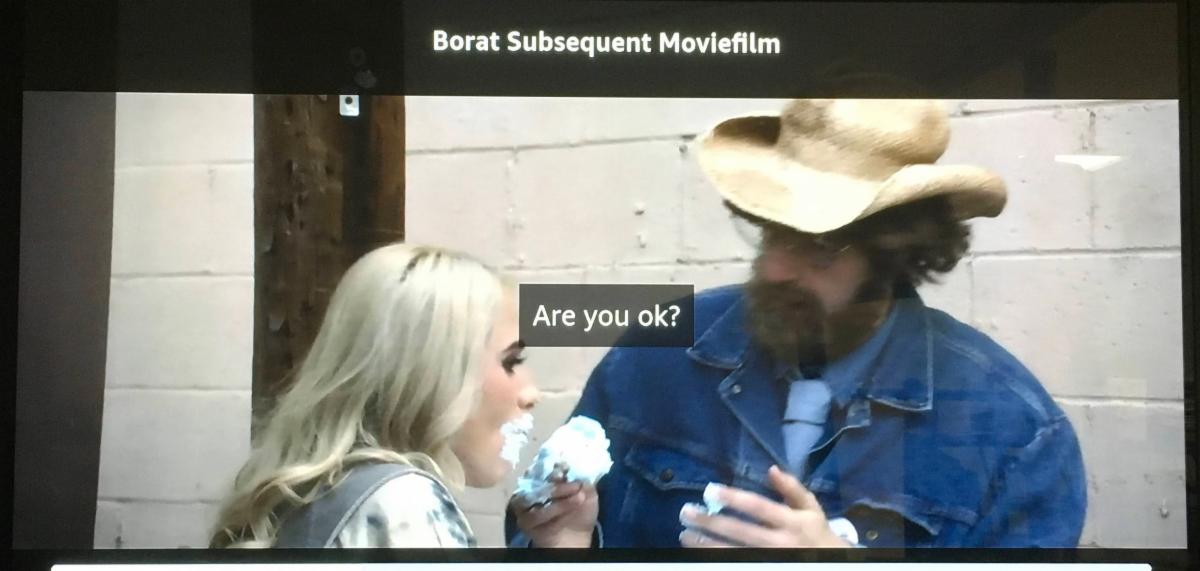 Borat’s daughter, played by the amazing Maria Bakalova, has just mistakenly eaten a plastic baby figurine on top of a cupcake. The subtitle says, “Are you OK?” but in Hebrew, Borat is really asking, “Ayfo ha-tinok? – Where’s the baby!?” It’s much more urgent and on point, setting up the next scene perfectly, while also leaving the viewer imagining some plastic dingo running off with it somewhere.
Borat’s daughter, played by the amazing Maria Bakalova, has just mistakenly eaten a plastic baby figurine on top of a cupcake. The subtitle says, “Are you OK?” but in Hebrew, Borat is really asking, “Ayfo ha-tinok? – Where’s the baby!?” It’s much more urgent and on point, setting up the next scene perfectly, while also leaving the viewer imagining some plastic dingo running off with it somewhere.

 Here, Borat spews up some Hebrew gobbledygook, but ends up saying what I think is “Baruch Hashem ma-she-hu yikra” (God willing, something will happen). You would think he might use a more urgent and negative expression like “Has v’halila,” (God forbid, something should happen). But, in fact, he is turning the phrase on its head and saying that a father loving his children equally (and not caging his daughters) would be a good thing. Which is exactly what God was trying to tell Abraham at Moriah.
Here, Borat spews up some Hebrew gobbledygook, but ends up saying what I think is “Baruch Hashem ma-she-hu yikra” (God willing, something will happen). You would think he might use a more urgent and negative expression like “Has v’halila,” (God forbid, something should happen). But, in fact, he is turning the phrase on its head and saying that a father loving his children equally (and not caging his daughters) would be a good thing. Which is exactly what God was trying to tell Abraham at Moriah.
 What Borat really says in Hebrew is, “I’m taking you to someone who will teach you how to be lovely (nechmad – which also can be translated in Borat-ese as “niiice“). There is nothing feminist about the influencer they meet; the goal here is not to liberate the girl, but to prepare Tutar to be gifted to a person who is decidedly anti-feminist. But, ultimately, Tutar is in fact liberated. Nechmad is a perfect word choice for the knowledgeable Jew, evoking a well known Hebrew song (and a popular children’s TV program) about colorful butterflies emerging from the cocoons (cages) of childhood. Nechmad is a cuddly word — the word for warmth (cham) is embedded within it, evoking the nostalgic feelings of an old ’70s singalong — there’s even a Poogy song with that name.
What Borat really says in Hebrew is, “I’m taking you to someone who will teach you how to be lovely (nechmad – which also can be translated in Borat-ese as “niiice“). There is nothing feminist about the influencer they meet; the goal here is not to liberate the girl, but to prepare Tutar to be gifted to a person who is decidedly anti-feminist. But, ultimately, Tutar is in fact liberated. Nechmad is a perfect word choice for the knowledgeable Jew, evoking a well known Hebrew song (and a popular children’s TV program) about colorful butterflies emerging from the cocoons (cages) of childhood. Nechmad is a cuddly word — the word for warmth (cham) is embedded within it, evoking the nostalgic feelings of an old ’70s singalong — there’s even a Poogy song with that name.
You can see how much more there is to the film if you can crack Borat’s secret code, using the Jews’ secret language. And because we get the joke, we know how deadly serious Cohen’s message really is, and can intuit why he urgently wanted to release this “moviefilm” a week before the American election.
When the election is over, the world will still need people like Sacha Baron Cohen and we Jews will still admire his chutzpah. The guy who was gutsy enough to call out Facebook, saying “They would have let Hitler buy ads.” will always have a place in the Jewish pantheon. No matter what happens next Tuesday, the world will still need niiice people like that.
Thursday, October 29, 2020
In this Moment: Borat's Hidden Message to Jews, Jewish Voting Guide; Anti-Semitism in America Survey


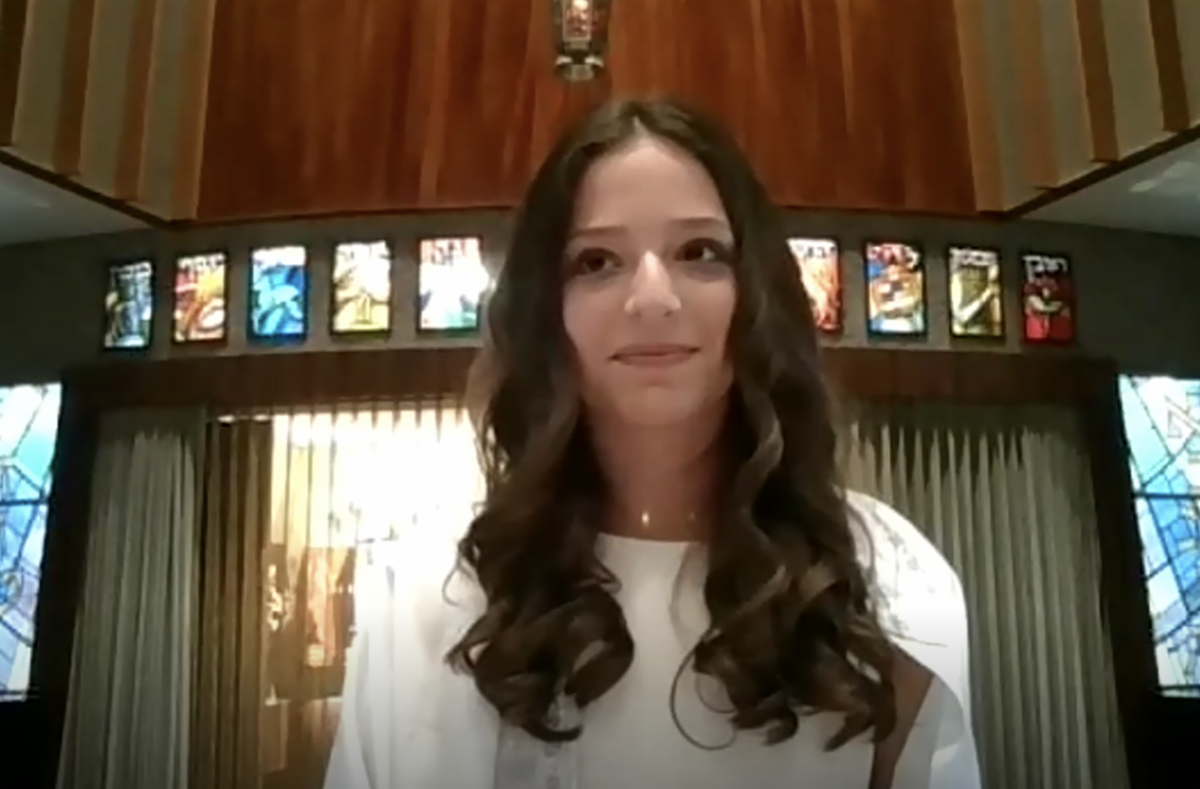
The time for such consultation has arrived










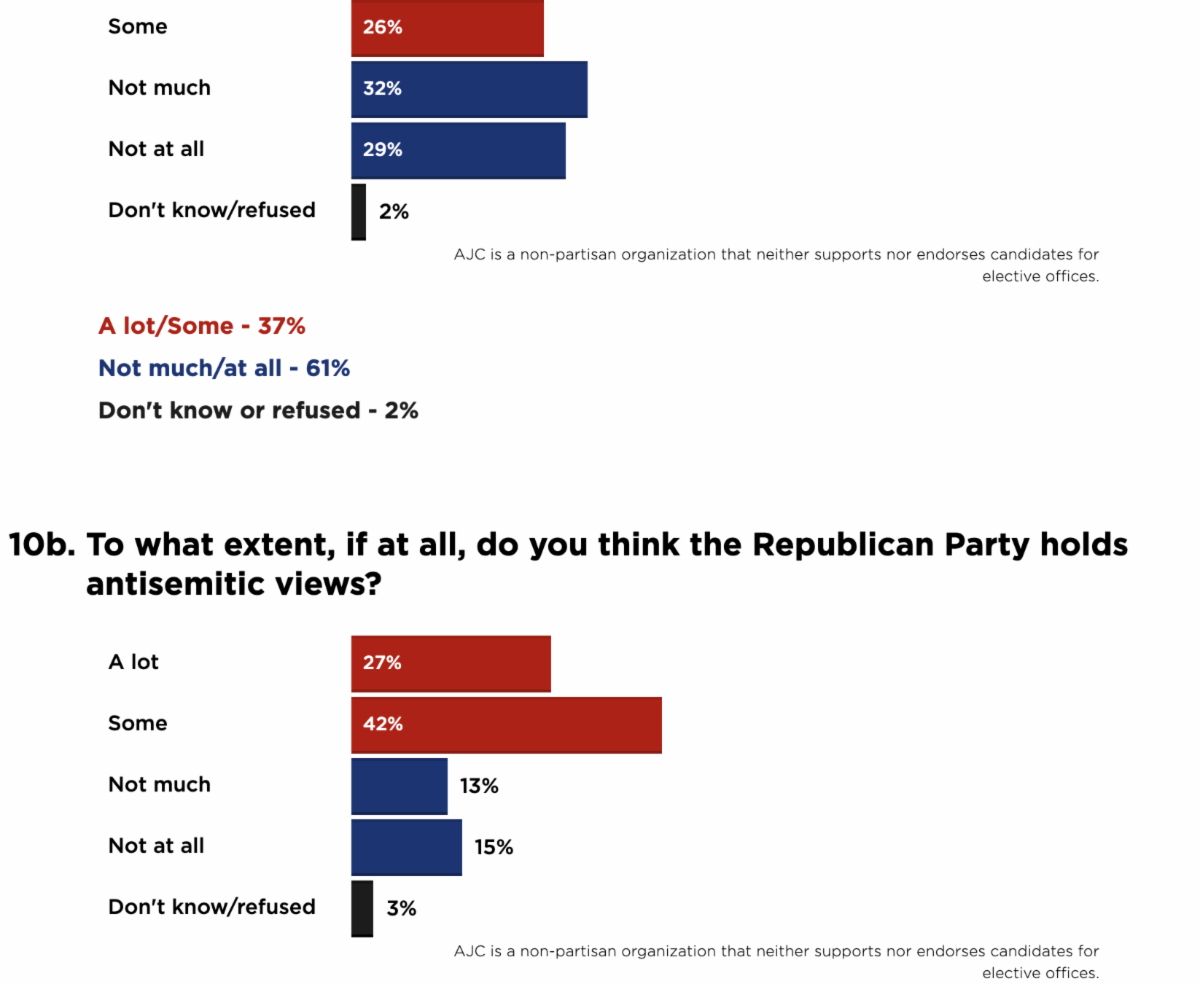



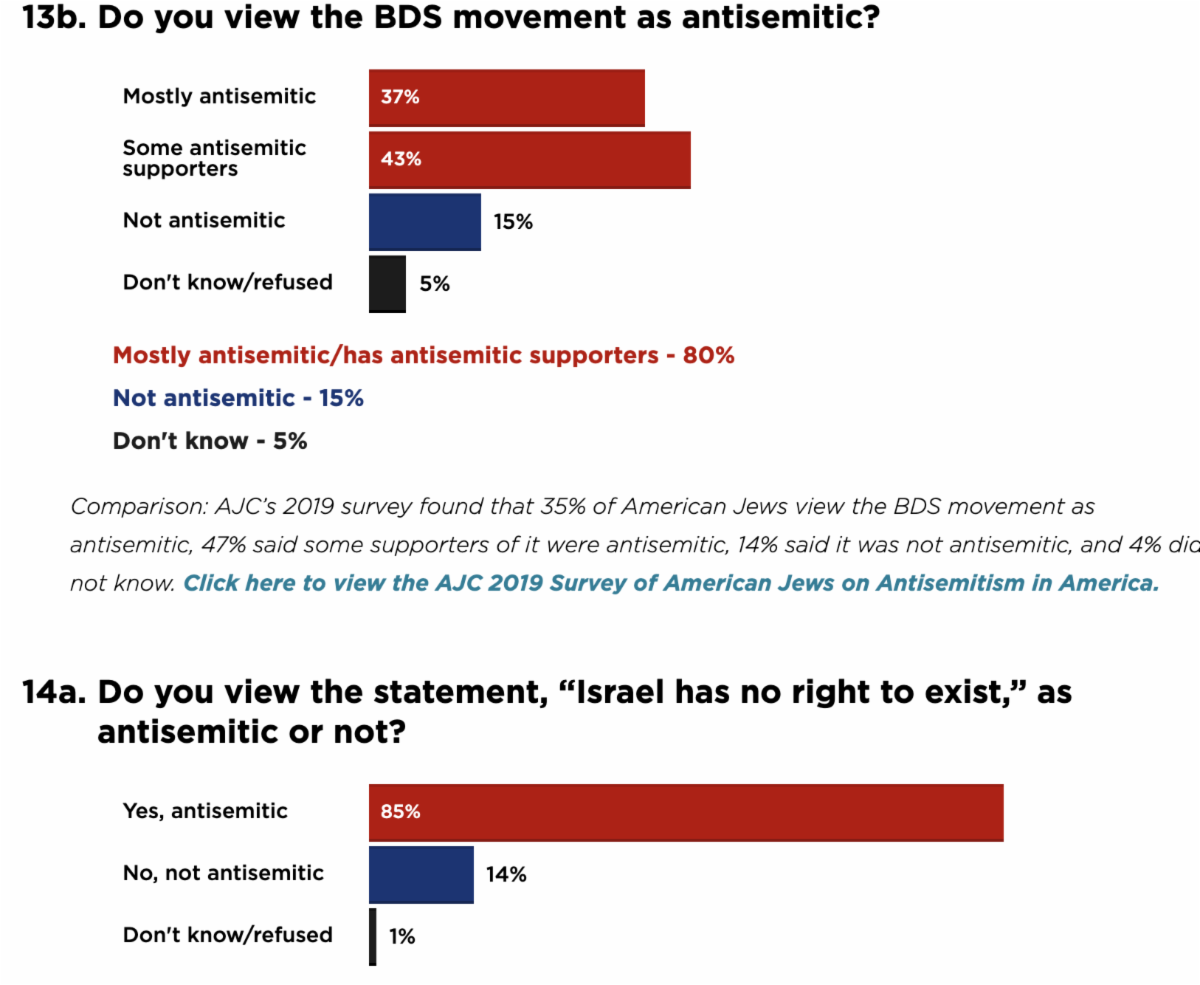
Jewish tradition calls upon us to pursue justice and govern ourselves through fairness and the rule of law. The Torah recognizes the need for a justice without bias as fundamental to the functioning of society, as it is written: לֹא־תַעֲשׂ֥וּ עָ֙וֶל֙ בַּמִּשְׁפָּ֔ט, "you shall not render an unfair decision" (Leviticus 19:15).
Furthermore, the Talmud acknowledges the role the people must play in selecting their own leaders: אֵין מַעֲמִידִין פַּרְנָס עַל הַצִּבּוּר אֶלָּא אִם כֵּן נִמְלָכִים בַּצִּבּוּר,"a ruler is not to be appointed unless the community is first consulted" (Berakhot 55a).
This value is codified in significant documents and constitutions such as the US Declaration of Independence which says that the government derives its "just powers from the consent of the governed."
In light of the highly contentious atmosphere surrounding the 2020 United States election, the Rabbinical Assembly, representing Conservative and Masorti rabbis around the world, is concerned about the integrity of the democratic process, as well as the potential discord and division in American society, both during the voting process and in the period following the November 3 Election Day.
This election season comes amidst the devastating COVID-19 pandemic that has taken the lives of well over 200,000 Americans and has disrupted everyday life. In order to safely participate in the election, many more Americans than in the past are voting by mail to avoid in-person crowds at the polls. The surge in balloting by mail has stressed the system and election results likely will not be completely tabulated on Election Night, November 3. Consistent with our Resolution on Voting Rights in the United States of America, passed in 2019, the Rabbinical Assembly seeks to ensure that all citizens who lawfully cast a vote in 2020 will have their votes counted. Safe, fair, and accessible elections are core components of a strong, thriving democracy.
Therefore, the Rabbinical Assembly resolves to call on all segments of American society to preserve democratic norms and values in the elections process. In pursuit of this goal, the Rabbinical Assembly further resolves to:
- Advocate for the full registration of all eligible would-be voters;
- Advocate for the counting of every vote lawfully cast in the 2020 elections and denounce efforts to limit or reduce opportunities and means to vote;
- Denounce all violence both prior to and following the election, including any intimidation towards election officials and citizens seeking to cast their vote and/or intentional disinformation about the voting process;
- Urge candidates not to proclaim victory prematurely, media outlets not to declare the outcome of an election prematurely, and states to wait to appoint their presidential electors until their results are officially certified; and
- Demand all candidates and their supporters respect the outcome of election results. In those cases in which the electoral system calls for a transfer of power, we call on everyone to engage in the peaceful transfer of power and to uphold the fundamental rights and governing sentiments of the United States Constitution, which seeks to "establish Justice" and "ensure domestic tranquility."






























